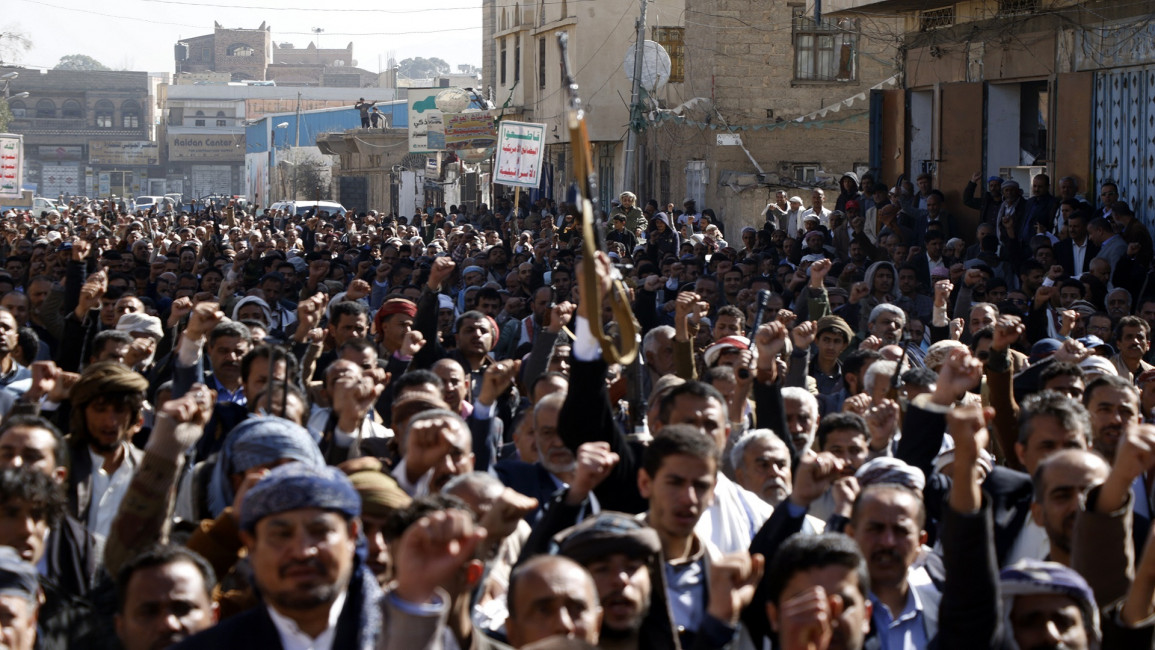HRW says Houthi fire caused Yemen blaze that killed migrants
Human Rights Watch said on Tuesday that "unidentified projectiles" launched by Yemen's Houthi rebels caused a March 7 blaze that killed dozens of migrants at a holding facility in the capital.
The Iran-backed rebels control much of northern Yemen, including the capital Sanaa, whose capture from the Saudi-backed government in 2014 sparked a devastating war.
"Scores of migrants burned to death in Yemen on March 7, 2021, after Houthi security forces launched unidentified projectiles into an immigration detention centre in Sanaa, causing a fire," HRW said in a statement.
It said inmates -- most of them Ethiopian migrants -- had been protesting against overcrowding when camp guards rounded up hundreds of them into a hangar and fired two projectiles into the building.
"The migrants said the first projectile produced a lot of smoke and made their eyes water and sting. The second, which the migrants called a 'bomb', exploded loudly and started a fire," HRW said.
It added that hundreds of injured inmates were being treated in hospitals in Sanaa where a "heavy security presence" had posed problems for humanitarian agencies.
Last week, the International Organization for Migration urged the rebels to provide unimpeded access to the injured.
It said more than 170 people had been hurt, over half of them seriously, and as many as 60 killed.
In correspondence with HRW, Houthi spokesman Mohammed Abdulsalam said the incident "should not be politicised or exploited".
"The incident that took place was a normal result that occurs in similar incidents all over the world," he said, according to the statement.
He called for the lifting of a longstanding Saudi-led blockade on Sanaa's rebel-controlled airport, so migrants "can return home".
The Saudi-led coalition intervened in Yemen in 2015 to back the government against the rebels. Since then, tens of thousands have been killed and millions displaced in what the United Nations calls the world's worst humanitarian crisis.
Despite more than six years of conflict, the impoverished country is still a magnet for migrants from the nearby Horn of Africa seeking a better life in the wealthy Gulf Arab states.
Follow us on Facebook, Twitter and Instagram to stay connected


![President Pezeshkian has denounced Israel's attacks on Lebanon [Getty]](/sites/default/files/styles/image_684x385/public/2173482924.jpeg?h=a5f2f23a&itok=q3evVtko)



 Follow the Middle East's top stories in English at The New Arab on Google News
Follow the Middle East's top stories in English at The New Arab on Google News


